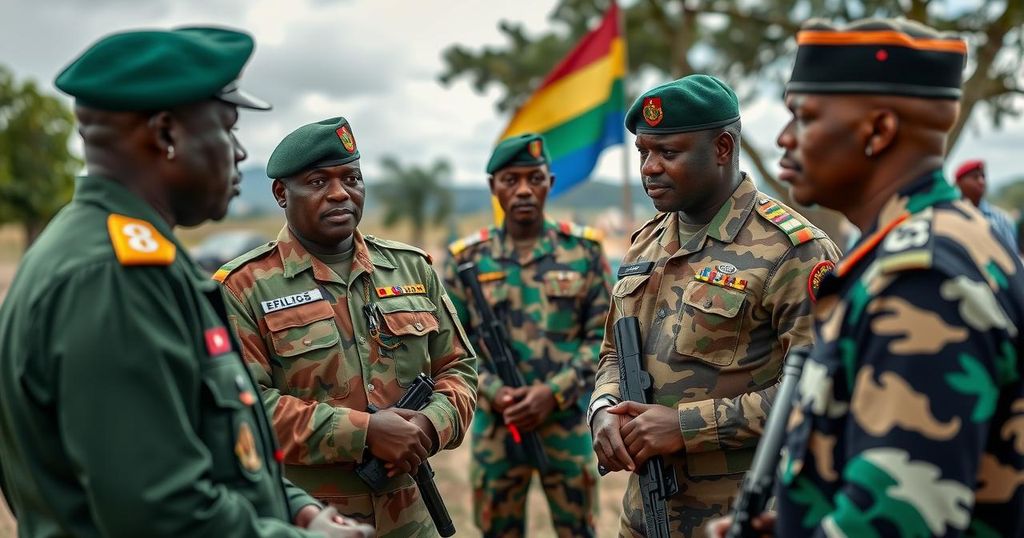The armies of Uganda and Rwanda are effectively resolving cross-border security issues through phone calls and direct meetings between field commanders, as emphasized during the recent Proximity Commanders meeting in Musanze, Northern Rwanda. This shift has significantly improved cooperation, allowing quicker resolutions and enhancing bilateral relations after years of tension.
The armies of Uganda and Rwanda have adopted a more efficient strategy to address cross-border security issues, primarily through direct communication between field commanders. This development was highlighted during the recent third Proximity Commanders meeting held in Musanze, Northern Rwanda. Major General Vincent Nyakarundi, the Chief of Staff of the Rwanda Defence Forces, emphasized that the shift from diplomatic channels to direct coordination allows for quicker resolutions to cross-border issues. Previously, addressing such matters required lengthy processes involving embassy communications or higher headquarters in both capitals.
Lieutenant General Kayanja Muhanga, Commander of the Uganda People’s Defence Force (UPDF) Land Forces, reaffirmed the positive outcomes of these engagements on the fragile bilateral relations between Uganda and Rwanda. He stated that this initiative has notably enhanced cooperation and coordination between the armed forces, enabling them to tackle issues more efficiently.
The meeting in Musanze is particularly significant given the history of strained relations between the two countries, stemming from accusations of espionage and economic sabotage. Recent diplomatic efforts, including a visit by Chief of Defence Forces General Muhoozi Kainerugaba to Rwanda, have contributed to improving ties, especially in the wake of President Paul Kagame’s collaboration with Ugandan authorities.
Additionally, the meeting underscored the importance of implementing strategies that deter negative activities affecting border communities. Enhanced awareness programs were discussed to tackle issues such as drug smuggling and human trafficking. Delegates were also given the opportunity to visit several historical sites, including the Kigali Genocide Memorial and the Campaign Against Genocide Museum, to understand the profound impacts of the 1994 Genocide against the Tutsi.
The relationship between Uganda and Rwanda has historically been marked by both cooperation and conflict. In recent years, allegations of espionage and economic sabotage have led to significant tensions. However, recent diplomatic and military initiatives aim to mend these relations and establish a more collaborative approach to border security. The Proximity Commanders meetings are a part of these efforts, focusing on direct communication and enhanced coordination between military leaders of both nations.
In summary, the shift towards direct communication and coordination between the armed forces of Uganda and Rwanda represents a significant development in improving bilateral relations and addressing border security issues. By emphasizing efficiency and collaboration, both countries aim to overcome past tensions and focus on shared security goals. Enhanced awareness initiatives further underscore the commitment to curbing illicit activities along the border and fostering a more stable environment for the local communities.
Original Source: chimpreports.com






